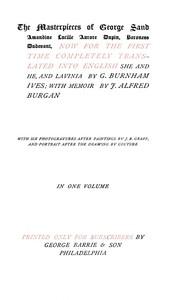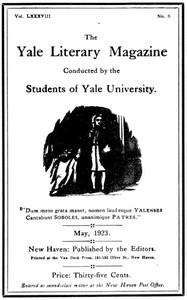|
|
Read this ebook for free! No credit card needed, absolutely nothing to pay.Words: 51841 in 12 pages
This is an ebook sharing website. You can read the uploaded ebooks for free here. No credit cards needed, nothing to pay. If you want to own a digital copy of the ebook, or want to read offline with your favorite ebook-reader, then you can choose to buy and download the ebook.

: Graham's Magazine Vol. XXI No. 6 December 1842 by Various Graham George R Editor Griswold Rufus W Rufus Wilmot Editor - Literature Modern 19th century Periodicals; Literature Periodicals@FreeBooksThu 08 Jun, 2023 Wickes, who was in the Reprisal 16, having under his command also the Dolphin 10, Capt. Samuel Nicholson. This force of little vessels accomplished a bold and destructive cruise, making the entire circuit of Ireland, though it was eventually chased into a French port by a line-of-battle ship. Its object was the interception of certain linen-ships, which it missed; its success, however, in the main, was such as to excite great alarm among the English merchants, and to produce warm remonstrances to France, from their government. At this time France was not at war with England, although she secretly favored and aided the cause of the revolted colonies. The appearance of American cruisers in the narrow seas, however, gave rise to so many complaints, as to induce the French government, in preference to pushing matters to extremities, temporarily to sequester the vessels. The Lexington was included in this measure, having been detained in port more than two months; or, until security was given that she would quit the European seas. This was done, and the brig got to sea again on the 18th September, 1777. It is probable that the recent difficulties had some effect on the amount of the military stores on board all three of the American vessels. At all events, it is certain that the Lexington sailed with a short supply of both powder and shot, particularly of the latter. The very next day she made an English cutter lying-to, which was approached with a confidence that could only have proceeded from a mistake as to her character. This cutter proved to be a man-of-war, called the Alert, commanded by Lieutenant, afterward Admiral Bazely, having a strong crew on board, and an armament of ten sixes. In the action that ensued, and which was particularly well fought on the part of the enemy, the Americans were, in a measure, taken by surprise. So little were the latter prepared for the conflict, that not a match was ready when the engagement commenced, and several broadsides were fired by discharging muskets at the vents of the guns. The firing killed the wind, and there being considerable sea on, the engagement became very protracted, during which the Lexington expended most of her ammunition. After a cannonading of two hours, believing his antagonist to be too much crippled to follow, and aware of his own inability to continue the action much longer, Capt. Johnston made sail, and left the cutter, under favor of a breeze that just then sprung up. The Lexington left the Alert rapidly at first, but the latter having bent new sails, and being the faster vessel, in the course of three or four hours succeeded in getting alongside again, and of renewing the engagement. This second struggle lasted an hour, the fighting being principally on one side. After the Lexington had thrown her last shot, had broken up and used all the iron that could be made available as substitutes, and had three of her officers and several of her men slain, besides many wounded, Capt. Johnston struck his colors. The first lieutenant, marine officer, and master of the Lexington were among the slain. When all was ready, Capt. Johnston, most of his officers, and several of his crew, or, as many as were in the secret, passed through the hole, and escaped. This was in February, 1778. The party wandered about the country in company, and by night, for more than a week; suffering all sorts of privations, until it was resolved to take the wiser course of separating. Dale, accompanied by one other, found his way to London, hotly pursued. At one time the two lay concealed under some straw in an out-house, while the premises were searched by those who were in quest of them. On reaching London, Dale and his companion immediately got on board a vessel about to sail for Dunkirk. A press-gang unluckily took this craft in its rounds, and suspecting the true objects of the fugitives, they were arrested, and, their characters being ascertained, they were sent back to Mill Prison in disgrace. This was the commencement of a captivity far more tedious than the former. In the first place they were condemned to forty days' confinement in the black hole, as the punishment for the late escape; and, released from this durance, they were deprived of many of their former indulgences. Dale himself took his revenge in singing "rebel songs," and paid a second visit to the black hole, as the penalty. This state of things, with alternations of favor and punishment, continued quite a year, when Dale, singly, succeeded in again effecting his great object of getting free. The mode in which this second escape was made is known, but the manner by which he procured the means he refused to his dying day to disclose. At all events, he obtained a full suit of British uniform, attired in which, and seizing a favorable moment, he boldly walked past all the sentinels, and got off. That some one was connected with his escape who might suffer by his revelations is almost certain; and it is a trait in his character worthy of notice, that he kept this secret, with scrupulous fidelity, for forty-seven years. It is not known that he ever divulged it even to any individual of his own family. Rendered wary by experience, Dale now proceeded with great address and caution. He probably had money, as well as clothes. At all events, he went to London, found means to procure a passport, and left the country for France, unsuspected and undetected. On reaching a friendly soil, he hastened to l'Orient, and joined the force then equipping under Paul Jones, in his old rank of a master's mate. Here he was actively employed for some months, affording the commodore an opportunity to ascertain his true merits, when they met with something like their just reward. As Dale was now near twenty-three, and an accomplished seaman, Jones, after trying several less competent persons, procured a commission for him from the commissioners, and made him the first lieutenant of his own ship, the justly celebrated Bon Homme Richard. It is not our intention, in this article, to enter any farther into the incidents of this well known cruise, than is necessary to complete the present subject. Dale does not appear in any prominent situation, though always discharging the duties of his responsible station, with skill and credit, until the squadron appeared off Leith, with the intention of seizing that town--the port of Edinburgh--and of laying it under contribution. On this occasion, our lieutenant was selected to command the boats that were to land, a high compliment to so young a man, as coming from one of the character of Paul Jones. Every thing was ready, Dale had received his final orders, and was in the very act of proceeding to the ship's side to enter his boat, when a heavy squall struck the vessels, and induced an order for the men to come on deck, and assist in shortening sail. The vessels were compelled to bear up before it, to save their spars; this carried them out of the firth; and, a gale succeeding, the enterprise was necessarily abandoned. This gale proved so heavy, that one of the prizes actually foundered. A few days later, Jones made a secret proposal to his officers, which some affirm was to burn the shipping at North Shields, but which the commanders of two of his vessels strenuously opposed, in consequence of which the project was abandoned. The commodore himself, in speaking of the manner in which this and other similar propositions were received by his subordinates, extolled the ardor invariably manifested by the young men, among whom Dale was one of the foremost. Had it rested with them, the attempts at least would all have been made. On the 19th September occurred the celebrated battle between the Serapis and the Bon Homme Richard. As the proper place to enter fully into the details of that murderous combat will be in the biography of Jones, we shall confine ourselves at present to incidents with which the subject of this memoir was more immediately connected. Free books android app tbrJar TBR JAR Read Free books online gutenberg More posts by @FreeBooks
: A természettudomány fejlődésének története (1. kötet) by B Lsche Wilhelm Sch Pflin Alad R Translator - Science History@FreeBooksThu 08 Jun, 2023

: Crainquebille y.m. kertomuksia by France Anatole Manninen Otto Translator - France Social life and customs Fiction; French fiction Translations into Finnish; Short stories French Translations into Finnish@FreeBooksThu 08 Jun, 2023
|
Terms of Use Stock Market News! © gutenberg.org.in2025 All Rights reserved.






